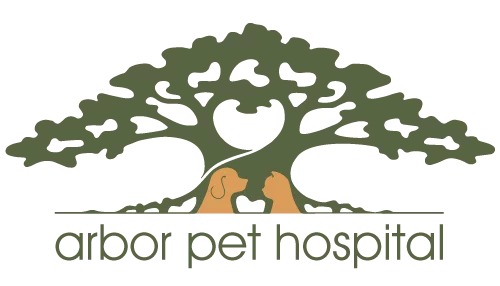Why is My Dog Not Eating in Wilton Manors, FL
Any pet owner whose fur baby has stopped eating knows the feelings of confusion and worry that go with it. When a dog doesn’t eat, the usual first thought is that something’s wrong. There can be many reasons why a dog will stop eating, but many times, there’s a medical issue behind a dog’s refusal to eat. This article will explore the more common causes for a dog to say no to his bowl of kibble.
Common Reasons Dogs Don’t Eat
There are many reasons why a dog will refuse to eat. Causes can range from something in the dog’s environment, stress, or stomach upset. Some common reasons include:
Food Issues
Some dogs are happy to chow down on just about anything. But others are picky eaters. And if something is a little off (or a lot off), like food that has gone stale, a changed formula, old, spoiled, or anything else that could change the taste, it might result in him refusing the food. Another possible issue is if the dog’s food has been changed for some other brand of type. If a change isn’t made gradually, it can cause the dog to have an stomach upset.
Household Changes
Any change in the household (new job schedule, new baby, family member no longer there, new pet, loss of a pet, etc.) can cause a dog anxiety which can result in a loss of appetite.
Separation Anxiety
Some dogs become so anxious when their person is away that they won’t eat. There are dogs who become anxious unless their person is in the same room with them while they eat.
Rescue Dog
Is your dog a new rescue? It can take a dog a while to settle into a new home. It isn’t unusual for a dog in a strange new home to not eat for the first day or two.
New Home
Moving to a new home can cause a dog to stop eating for a couple of days.

Recent Vaccinations
Some dogs will have a bit of a reaction to vaccinations, including a loss of appetite for a day or two.
Dental Issues
If your dog has a problem with a tooth or a wound to his mouth, he may refuse food until the problem is corrected. This is a common problem.
Blockage
It isn’t uncommon for a dog to eat something that isn’t food. Sometimes an object will form a blockage in his digestive tract. This is a medical emergency and can be fatal if ignored.
Fussy Eater
Some dogs are fussy and just about anything can cause them to refuse food.
Dietary Indiscretion
Sometimes dogs will eat things that are toxic, rotten, or non-food items.
Senior Dog
Seniors can suffer from cognitive decline, vision loss, and problems getting around, and sometimes they will stop eating if they have problems locating their bowl. Also, as dog’s age, they naturally slow down. As a result, they may not have as big an appetite as in their younger days.
Stress
Stress can affect a dog’s appetite and many things can cause stress. It can come from something as simple as a dog’s food bowl being moved into another room where he isn’t used to eating. It can come from another pet eating beside the dog’s bowls. Sometimes a dog can be intimidated by another pet, even when owners can’t detect it. And sometimes when a dog’s person is upset, it can make the dog anxious and worried.
Too Many Snacks
Despite the way a dog will beg for goodies, sometimes you have to say no. Because all those calories add up over the course of a day. Make sure you know how many extra calories you’re giving out in treats. A small dog will put a dent in their daily calorie count much quicker than a big dog. And they may not want their food in favor of treats.`
Overeating
If you just fill your dog’s bowl and he’s eating throughout the day, he may actually be overeating. Also, you should ask your veterinarian how much to feed your dog. When you follow the directions on the feed bags and cans of wet food, you still may be overfeeding. This is because pet food companies want to sell you food, not main your dog’s ideal weight. And sometimes, they overstate the amount to feed.

Medical Issues
Medical problems, anything that causes pain, nausea, stress, or lethargy, can cause a dog to refuse food. Some are:
- Diabetes
- Vomiting
- Diarrhea
- Stomach upset
- Inflammatory bowel disease
- Fever
- Infections
- Parasites
- Liver disease
- Kidney disease
- Lung disease
- Heart failure
- Pancreatitis
- Cancer
- Poisoning
There are many more diseases that can cause a dog to stop eating.
How Long Is Too Long
If an adult dog has stomach upset, 24 to 48 hours may be long enough for their stomach to settle down. But longer than that means something needs veterinary attention. Never wait too long to contact your veterinarian. A dog that doesn’t eat can pass away after five days with no food. Never wait more than 48 hours to contact your veterinarian. Puppies should never go more than a few hours without eating. Do not wait 24 hours to contact your veterinarian if your puppy stops eating.
Things To Try
If your dog refuses food, there are a few things you can try to stimulate them to eat, including:
- If they only eat dry kibble, try adding in a little canned wet food.
- Try mixing a little bland diet in their kibble. The bland diet is made of rice and boneless, skinless, boiled chicken. This food is easy to digest and dogs love it.
- If they eat wet food, warm it a little. But be careful. It’s easy for canned food to get hot fast. Don’t burn your dog on accident.
- Add a little chicken broth (no-sodium) to their kibble. Give it a few minutes to soften the kibble.
If none of these help and he just won’t eat, contact your veterinarian. Do not wait more than 48 hours. Most likely, something is wrong if he still isn’t eating.
Conclusion
If you notice your adult dog isn’t eating, pay careful attention to make sure he is eating within 48 hours. Puppies require intervention right away. They need to eat every few hours. Contact your veterinarian if your dog or puppy doesn’t start eating in the appropriate time frame. Never just assume everything is fine. Dogs love to eat. And when they don’t, you need to be paying attention and take appropriate action when needed.
If you have any questions about your dog’s health, please schedule an appointment with us or call Arbor Pet Hospital at (954) 565-1896.
